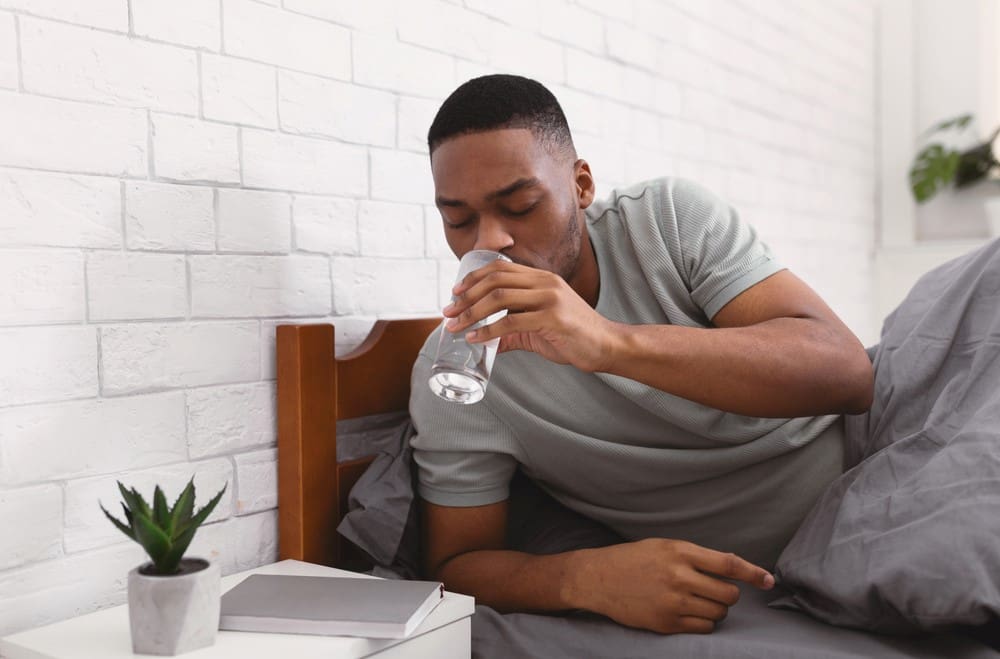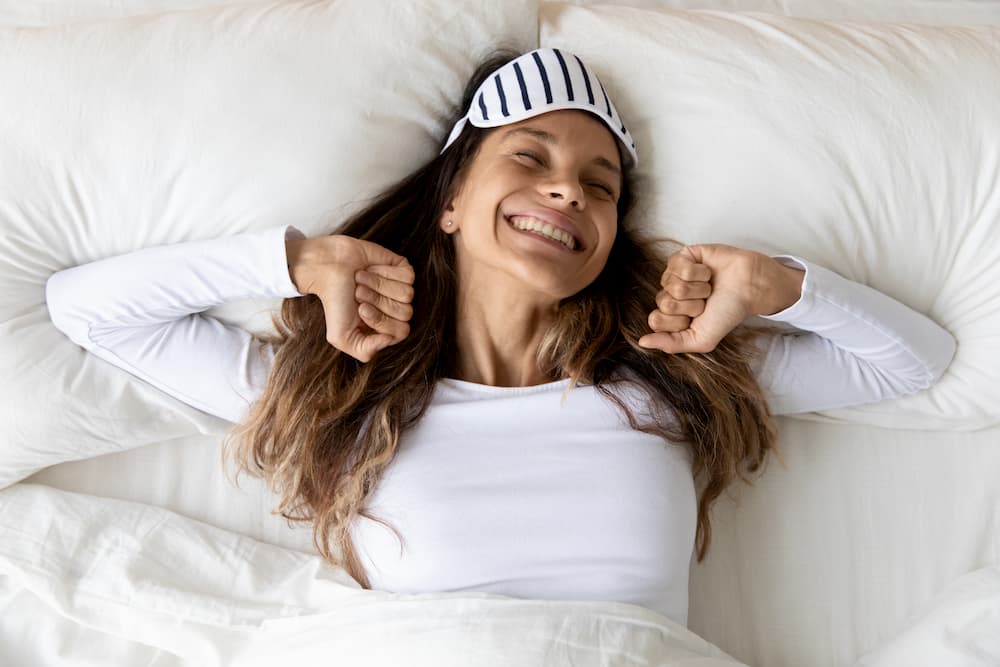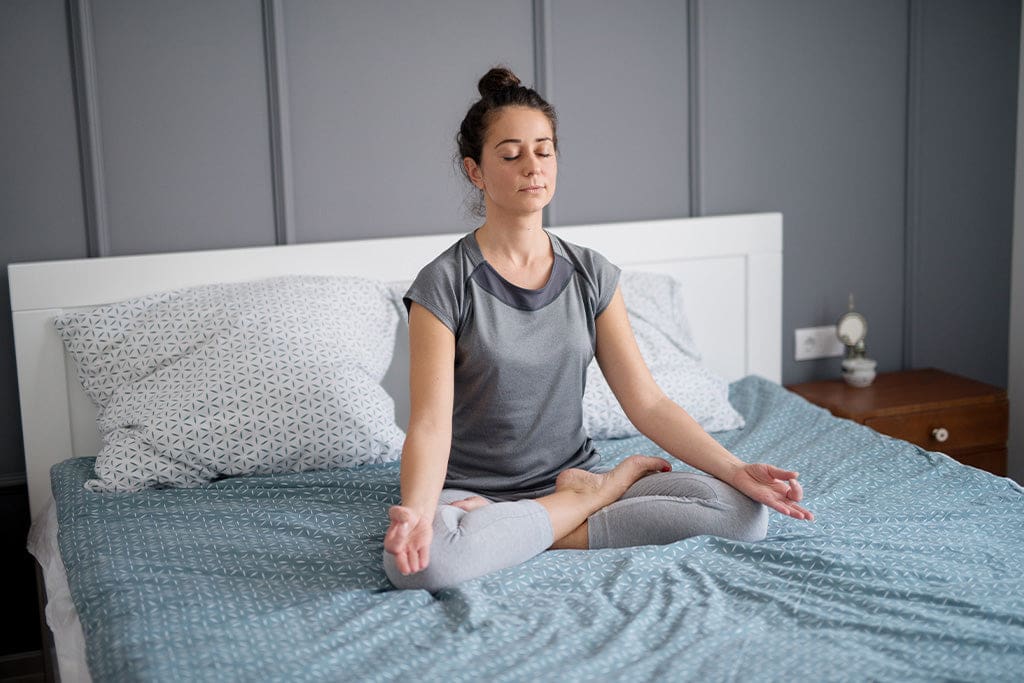Health
8 Secrets to Perfecting Your Sleep Hygiene Techniques


In our fast-paced, modern world, the importance of quality sleep cannot be overstated. Many of us struggle to achieve the rest we need, often due to poor sleep hygiene practices.
However, there are eight essential secrets that can revolutionize the way you approach sleep. These techniques have been proven to enhance sleep quality and promote overall well-being.
By incorporating these strategies into your routine, you can transform your sleep patterns and experience the restful nights you deserve.
Key Takeaways
- Maintaining a cool room temperature and using breathable bedding can help regulate body temperature and improve sleep quality.
- Incorporating relaxation techniques into daily routines, such as deep breathing exercises and visualization techniques, can help reduce stress levels and promote better sleep.
- Consistency in sleep schedule, including a regular bedtime routine and avoiding electronic devices before bed, can improve sleep quality.
- Incorporating stress-reducing practices, like mindfulness meditation and regular physical activity, into daily routines can contribute to better sleep hygiene.
Cool Room Temperature
Maintaining a cool room temperature is essential for optimizing the quality of your sleep and ensuring a restful night’s rest. The National Sleep Foundation recommends keeping your bedroom between 60 and 67 degrees Fahrenheit for the best sleep. This range allows your body to naturally cool down, which is a key part of the process that helps you fall asleep. When your body temperature drops, it signals to your brain that it’s time for bed. Therefore, a cooler room can facilitate this process and help you drift off more easily.
It’s important to note that individual preferences may vary, and some people may find temperatures outside of this range more comfortable. Experiment with different temperatures to find what works best for you. Using fans or air conditioning can also be helpful in achieving the ideal temperature for sleep. Additionally, consider using breathable bedding and sleepwear to further regulate your body temperature throughout the night.


Comfortable Mattress
Achieving an ideal room temperature is just one component of cultivating an environment conducive to quality sleep. The comfort of your mattress also plays a crucial role in promoting restful and rejuvenating sleep.
A comfortable mattress provides the necessary support to keep your spine aligned and relieve pressure points, allowing you to fully relax and drift into a deep sleep. When selecting a mattress, consider your sleep preferences, such as firmness and material, to ensure it meets your individual needs.
Memory foam mattresses are known for their contouring abilities, while innerspring mattresses offer a more traditional bounce. Additionally, hybrid mattresses combine the benefits of different materials for a customized sleep experience.
Investing in a high-quality mattress is an investment in your well-being, as it can significantly impact your sleep quality and overall health. Take the time to test different options and choose one that provides the freedom to move comfortably while offering the necessary support for a peaceful night’s rest.
Your mattress should be a sanctuary, inviting you to escape the day’s demands and embrace the freedom of restful sleep.


Relaxation Techniques
Let’s explore some effective relaxation techniques that can help improve sleep quality.
Deep breathing exercises, progressive muscle relaxation, and visualization techniques are proven methods for calming the mind and body before bedtime.
Incorporating these techniques into your nightly routine can promote better sleep and overall well-being.
Deep Breathing Exercises
Deep breathing exercises, often utilized as relaxation techniques, can significantly improve sleep quality and promote a sense of calm and well-being. By engaging in deep breathing, individuals can activate their body’s relaxation response, leading to reduced stress levels and better sleep.
Incorporating deep breathing exercises into a bedtime routine can help free the mind from the day’s worries and tensions, allowing for a more restful and rejuvenating sleep experience. One simple deep breathing exercise involves inhaling deeply through the nose for a count of four, holding the breath for a count of seven, and then exhaling slowly through the mouth for a count of eight.


This technique, known as the 4-7-8 breathing method, can be practiced anytime, anywhere, providing a sense of freedom and empowerment over one’s sleep and overall well-being.
Progressive Muscle Relaxation
After mastering deep breathing exercises, individuals can further enhance their sleep hygiene by incorporating progressive muscle relaxation techniques as part of their bedtime routine. Progressive muscle relaxation involves tensing and then relaxing each muscle group to release physical tension and promote a sense of relaxation. This systematic technique can help individuals achieve a state of deep relaxation, which is conducive to better sleep quality.
To enjoy the benefits of progressive muscle relaxation, individuals can follow these steps:
- Find a quiet and comfortable place to sit or lie down.
- Start by tensing and relaxing the muscles in your toes and feet, working your way up through the body.
- Focus on the difference between tension and relaxation in each muscle group.
- Practice deep, slow breathing while performing the muscle relaxation exercises.
Visualization Techniques
Visualization techniques, such as guided imagery and mental rehearsal, are effective relaxation methods that can contribute to improving sleep hygiene and promoting better sleep quality.
By engaging in guided imagery, individuals can create a peaceful and calming mental image, such as a serene beach or a tranquil forest, to help relax the mind and body before sleep. This practice allows individuals to escape the stresses of the day and prepare for a restful night’s sleep.
Mental rehearsal involves envisioning successful and positive outcomes, which can reduce anxiety and promote a sense of calmness conducive to sleep.
Incorporating visualization techniques into a bedtime routine can help individuals achieve a state of mental and physical relaxation, leading to improved sleep quality and overall well-being.
Consistent Sleep Schedule
Maintaining a consistent sleep schedule is crucial for optimizing sleep quality and overall well-being.
This involves establishing a regular bedtime routine, which can help signal to the body that it’s time to wind down and prepare for sleep.
Additionally, syncing the sleep-wake cycle with natural light patterns can further support the establishment of a healthy sleep pattern.


Regular Bedtime Routine
How crucial is maintaining a consistent sleep schedule for your overall sleep hygiene and well-being?
A regular bedtime routine is essential for promoting better sleep and overall well-being. By following a consistent sleep schedule, you can train your body to fall asleep and wake up at the same time every day, leading to improved sleep quality and overall health.
To help you enjoy a regular bedtime routine, consider the following tips:
- Set a specific bedtime and wake-up time, even on weekends
- Establish a relaxing pre-sleep routine, such as reading or taking a warm bath
- Avoid electronic devices at least an hour before bed
- Create a comfortable sleep environment, including a supportive mattress and pillows
Sleep-Wake Cycle
A consistent sleep schedule, also known as the sleep-wake cycle, plays a crucial role in regulating your body’s internal clock and promoting optimal sleep hygiene and overall well-being.
Maintaining a regular sleep-wake cycle involves going to bed and waking up at the same time every day, even on weekends. This practice helps synchronize your body’s internal clock, making it easier to fall asleep and wake up naturally.


By adhering to a consistent schedule, you can enhance the quality and duration of your sleep, leading to improved mood, cognitive function, and overall health.
While it’s important to prioritize consistency, it’s also essential to find a schedule that aligns with your lifestyle and allows for flexibility, providing the freedom to adapt to occasional changes without disrupting your sleep patterns.
Establish Sleep Pattern
The foundation for a consistent sleep schedule, or ‘sleep-wake cycle,’ lies in aligning your bedtime and wake-up time to regulate your body’s internal clock and promote optimal sleep hygiene and overall well-being. To establish a healthy sleep pattern, consider the following tips:
- Consistency: Aim to go to bed and wake up at the same time every day, even on weekends.
- Avoidance of Stimulants: Refrain from consuming caffeine and nicotine close to bedtime.
- Limit Naps: If you need to nap, keep it short (20-30 minutes) and avoid napping late in the day.
- Create a Relaxing Bedtime Routine: Engage in calming activities before bed, such as reading or taking a warm bath.
Stress Management
Implementing effective stress management techniques is crucial for maintaining optimal sleep hygiene. In today’s fast-paced world, stress can easily build up and interfere with our ability to relax and get a good night’s sleep.
To combat this, it’s essential to incorporate stress-reducing practices into our daily routines. One effective technique is mindfulness meditation, which allows individuals to focus on the present moment and let go of worries and anxieties.


Deep breathing exercises can also help activate the body’s relaxation response, promoting a sense of calmness and reducing stress levels.
Engaging in regular physical activity is another powerful way to manage stress, as it releases endorphins and helps to clear the mind.
Additionally, creating a relaxing bedtime routine, such as taking a warm bath or reading a book, can signal to the body that it’s time to wind down and prepare for sleep.
Aromatherapy
An effective way to enhance sleep hygiene is by incorporating aromatherapy techniques into your nightly routine. Aromatherapy involves using essential oils to promote relaxation and improve sleep quality. Here are some tips to help you enjoy the benefits of aromatherapy:
- Choose the Right Essential Oils: Lavender, chamomile, and ylang-ylang are popular essential oils known for their calming and sleep-inducing properties.
- Diffuse Oils in Your Bedroom: Use a diffuser to disperse the aroma of essential oils throughout your bedroom before bedtime.
- Create a Relaxing Bedtime Ritual: Incorporate aromatherapy into your bedtime routine by applying diluted essential oils to your wrists or using them in a pre-sleep massage.
- Practice Mindfulness: Take a few moments to breathe in the soothing scents and focus on the present moment, allowing the aromatherapy to calm your mind and prepare you for a restful night’s sleep.
Exercise Regimen
Incorporating a regular exercise regimen into your daily routine can significantly impact your overall sleep hygiene and promote better quality sleep. Engaging in physical activity during the day can help regulate your internal body clock, known as the circadian rhythm, which in turn can improve the quality of your sleep. Exercise also helps reduce stress and anxiety, common culprits of sleep disturbances. Whether it’s a brisk walk, a cardio workout, or yoga, finding an activity you enjoy and can commit to regularly is key.


However, it’s important to time your exercise wisely. While regular physical activity can promote better sleep, exercising too close to bedtime can have the opposite effect. Aim to finish moderate to vigorous workouts at least three hours before bedtime to allow your body temperature to drop and your mind to relax in preparation for sleep.
Furthermore, consistency is crucial. Creating a regular exercise routine, ideally incorporating at least 150 minutes of moderate-intensity aerobic activity per week, can lead to significant improvements in your sleep quality over time. Finding the right balance and sticking to it will help you reap the full benefits of an exercise regimen for better sleep.
Bedtime Routine
Engaging in a consistent exercise regimen can set the stage for a structured bedtime routine conducive to promoting better sleep quality. A bedtime routine is essential for signaling to your body that it’s time to wind down and prepare for sleep. Here are some tips to help you establish an effective bedtime routine:
- Consistency is key: Try to go to bed and wake up at the same time every day, even on weekends. This helps regulate your body’s internal clock and can improve the quality of your sleep.
- Unplug and unwind: Limit exposure to screens such as smartphones, tablets, and computers at least an hour before bed. Engage in calming activities like reading, meditating, or taking a warm bath to relax your mind and body.
- Create a comfortable sleep environment: Make sure your bedroom is conducive to sleep by keeping it dark, quiet, and cool. Invest in a comfortable mattress and pillows to support a good night’s rest.
- Avoid stimulating substances: Refrain from consuming caffeine, nicotine, and heavy meals close to bedtime. These can disrupt your ability to fall asleep and stay asleep.
Frequently Asked Questions
How Can I Incorporate Sleep Hygiene Techniques Into My Daily Routine if I Have a Busy Schedule?
Incorporating sleep hygiene techniques into a busy schedule involves prioritizing rest, creating a consistent sleep schedule, minimizing screen time before bed, and managing stress through relaxation techniques. These practices can improve sleep quality and overall well-being.
Are There Any Specific Relaxation Techniques That Are Especially Effective for Improving Sleep Quality?
Yes, there are several relaxation techniques that can significantly improve sleep quality. Mindfulness meditation, progressive muscle relaxation, and deep breathing exercises have been shown to be especially effective in promoting restful sleep and reducing insomnia symptoms.


Can Using Aromatherapy Really Help With Sleep, and if So, What Scents Are Most Beneficial?
Aromatherapy can aid sleep by promoting relaxation and reducing stress. Lavender, chamomile, and jasmine are commonly used scents for this purpose. Research suggests that these scents can help improve sleep quality and overall well-being.
What Are Some Effective Stress Management Techniques That Can Improve My Sleep Hygiene?
Effective stress management techniques that can improve sleep hygiene include mindfulness meditation, deep breathing exercises, regular physical activity, and maintaining a consistent sleep schedule. These techniques have been shown to reduce stress levels and promote better sleep quality.
How Can I Create a Bedtime Routine That Works for Me, Especially if I Have Trouble Sticking to a Consistent Schedule?
Creating a flexible bedtime routine involves identifying activities that signal the body to wind down, such as reading or gentle stretching. Prioritize calming, enjoyable activities and aim for a consistent bedtime within a reasonable window.


Hi, I’m Kyle Rivera, a news journalist and blog editor with the Daily Evening News. A TCU alum with a flair for storytelling, I spend my days uncovering impactful stories and my evenings exploring the realms of yoga, cycling, and whimsically bad poetry.
Travel is my escape; I’ve trekked from Tokyo’s neon lights to Iceland’s tranquil vistas. But no journey is complete without Mogli, my Golden Retriever, who’s redefining his breed standards in the most charming ways.
I love connecting with fellow travelers, yogis, cyclists, and anyone who enjoys a laugh at my poetic attempts. If you’re into stories that inspire, travel escapades, or just want to see what Mogli and I are up to, I’d love to hear from you on Instagram or Facebook. Let’s share tales and tips from around the globe!

